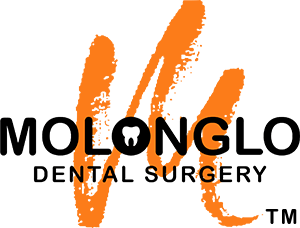Oral malodor, bad breath or Halitosis is an embarrassing disorder that affects a large percentage of the human population. According to a Say Ahh Study undertaken in association with the Melbourne Dental School, University of Melbourne, researchers found that more than half of the General Dental Practitioners reported seeing 1-10 patients with halitosis every week.
Common causes of bad breath are listed as follows:
- Tooth pathologies– Large dental cavities, oral cancer, improper wound care after extractions (dry socket) cause a rapid increase in the bacterial count contributing to bad breath.
- Gingival diseases-Gingival diseases occur due to poor oral hygiene or as a side effect of medications. Left untreated, it may prove to be a significant cause of bad breath.
- Dental appliances– Improper cleaning under orthodontic brackets or wires, not brushing the denture to remove food debris and not getting an improperly fitted old crown or bridge fixed- cause food impaction. This sets off several bacterial reactions resulting in bad breath or malodor.
- Dry mouth– Dry mouth may have been caused by an underlying disease or as a side effect of certain medications. If unaddressed, it can cause malodour.
- Impaired salivary flow– An impaired salivary flow in the mouth (less saliva) can cause the condition of ‘dry mouth’ ultimately resulting in halitosis.
- Smoking- excessive smoking causes gum diseases inadvertently leading to malodor or bad breath.
- Alcohol- excess Alcohol promotes the growth of odour-causing bacteria in the oral cavity.
- The coating on the Tongue– Poor oral hygiene results in the formation of a coating on the upper surface of the tongue. This covering contains bacterial products and food residue. Decomposition of this residue over time causes the generation of bad breath.
- Impacted food– lack of flossing causes food particles to remain stuck in the small gaps between the teeth. If the particles are not flossed out or professionally cleaned for a long period, it may promote the growth of bacteria.
- Gastrointestinal diseases– A Helicobacter pylori infection or gastroesophageal reflux disease may be an underlying cause of oral malodor.
- diseases of the liver, kidney and blood-related disorders can cause significant halitosis.
- Respiratory diseases – Bacterial activity in Bronchitis, tonsillitis, tonsillar and lung infections stones causes the production of malodorous gases, subsequently causing halitosis.
- Diet- garlic, onions and spicy food cause transient halitosis.
The following guidelines may help you understand if you have halitosis or not. However, we at Molonglo Dental Surgery urge our patients to undergo a complete clinical examination to ascertain the existence of bad breath, if any.
- You believe you have a bad breath or have been told by someone.
- You have visited a physician regarding bad breath on one or more occasions.
- You have bleeding gums or loose teeth or more than two deep dental cavities.
- You have been diagnosed with dry mouth by a general physician.
- You suffer from frequent canker sores
- You often have a bad taste in your mouth
- You often find some coating on your tongue, your tongue doesn’t look ‘pink’ but white or yellowish in colour
- You feel your bad breath has affected your social life and may affect your work-life as well.
- You’ve suffered from sinusitis, lung and bronchial diseases, stomach dysfunction, diabetes, liver dysfunction, anaemia, any autoimmune disease, cancer, HIV-positive /AIDS, emotional disturbances recently.
- You are a chronic smoker
- You frequently suffer from postnasal drip, hay fever, or other allergies
If you feel you have two or more of the aforementioned conditions, you can call us on +61262871222 to book an appointment at Molonglo Dental Surgery for a detailed dental examination, diagnosis and treatment.
The treatment of halitosis or bad breath requires a multidisciplinary approach. Dentists, dental hygienists, general physicians, ENTs, gastroenterologists and psychiatrists tend to work concurrently.
- In case of extraoral causes of bad breath- A consultation with a general physician, ENT, Gastroenterologist, psychiatrist, pulmonologist and neurologist will be proposed by a dentist or a dental hygienist.
- In the case of intraoral causes of halitosis-
- A consultation with a dentist
- Intraoral examination with/without radiographs and supplementary tests as needed.
- Definite Diagnosis
- Depending on the findings during the clinical examination, your dentist may suggest the following general treatment:
- Brushing with a soft brush twice a day
- Using a toothbrush and a tongue scraper to scrape the ‘coating’ on the tongue.
- Scaling and cleaning of teeth
- Mouthwashes as prescribed
- Flossing twice a day
- Referral to a specialist
In case of any additional treatments thereafter such as tooth coloured fillings, root canal treatments, extractions, gum surgeries- your friendly dentist at Molonglo Dental Surgery will provide you with suitable treatment options depending on the condition of your teeth and gums.
As the famous American conservative radio talk show host and writer Dennis Prager says,” A bad mood is like bad breath. Both are wrong to inflict onto others.”



